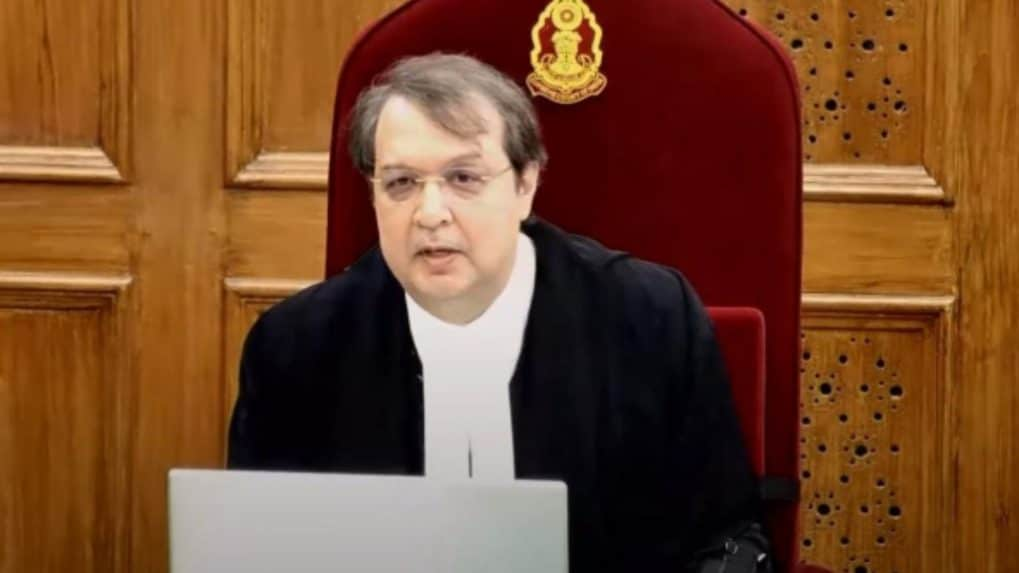From Valsad to SC: Justice Pardiwala holds fate of $3 billion gaming industry, 2 lakh jobs
For Justice Pardiwala, it’s another in a series of high-profile and often controversial moments that have kept him firmly in the national spotlight.
ADVERTISEMENT
The fate of India’s online gaming industry—worth an estimated $3 billion and supporting over two lakh jobs—now rests in the hands of Supreme Court Justice Jamshed Burjor Pardiwala. On Tuesday, a division bench comprising Justices JB Pardiwala and R Mahadevan reserved its verdict in the ₹2.5 lakh crore GST dispute that could decide the sector’s future.
For the gaming industry, the case is nothing short of existential. For Justice Pardiwala, it’s another in a series of high-profile and often controversial moments that have kept him firmly in the national spotlight.
From a Legal Legacy to the Apex Court
Born in Mumbai on August 12, 1965, into a storied legal family with deep roots in Valsad, Gujarat, Pardiwala’s lineage in law spans over a century. His great-grandfather Navrojji Bhikaji Pardiwala began practising in 1894, his grandfather Cawasji Navrojji Pardiwala followed from 1929 to 1958, and his father Burjor Cawasji Pardiwala joined the Valsad Bar in 1955.
Educated in Valsad, Pardiwala graduated from J.P. Arts College in 1985 and earned his law degree from K.M. Law College in 1988. He began practising at the Gujarat High Court in 1989, was elected to the State Bar Council in 1994, and served as Standing Counsel for the state from 2002. His judicial career began in 2011 when he was appointed an Additional Judge of the Gujarat High Court, becoming permanent in 2013.
Since his elevation to the Supreme Court in May 2022, Pardiwala has authored over 400 judgments in criminal matters, 250 in service law, 200 in civil and direct taxation, and 150 in GST cases. He is in line to become Chief Justice of India in May 2028, serving until August 2030.
A Judge in the Headlines
Justice Pardiwala is no stranger to public debate. His recent directives on controlling Delhi’s stray dog population—ordering the NCT government and civic bodies to remove all stray dogs and set up monitored shelters—sparked strong reactions from both supporters citing public safety and critics raising animal rights concerns.
Earlier this month, his bench also drew the ire of colleagues after remarks in an Allahabad High Court matter were deemed by Chief Justice DY Chandrachud and senior judges as unusually harsh in tone. The court had to later modify the order, deleting directions that curtailed a fellow judge’s case assignments.
High Stakes in the Gaming Tax Battle
In the online gaming GST case, the stakes are unprecedented. At the heart of the dispute is whether online skill gaming platforms should be taxed at 28% on the full value of entry fees or only on the platform’s commission. A ruling in favour of the tax authorities could impose a massive ₹2.5 lakh crore liability on the sector, potentially crippling operators and triggering widespread job losses.
For now, the industry waits—knowing that the next chapter in its survival story will be authored by a judge whose career has been shaped by both a deep respect for legal tradition and a willingness to court controversy in pursuit of what he sees as the public interest.

